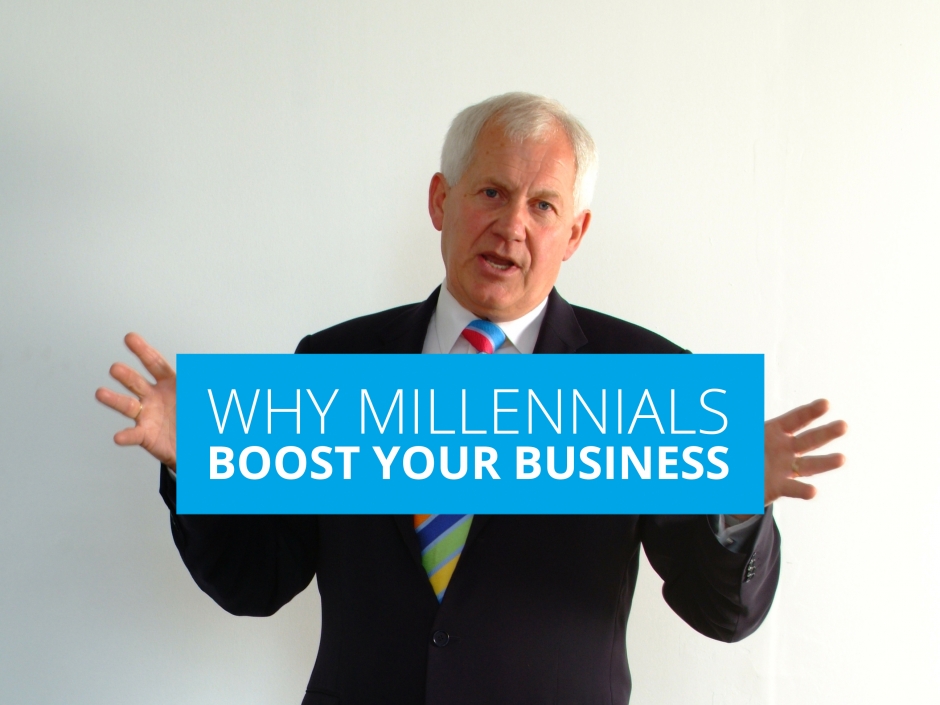Roger Harrop believes that millennials have the power to transform your business through the latest technologies. Embrace them and grow, he urges
With the UK economy on the up, small and medium-sized businesses (SMEs) have an opportunity to steal a march on their rivals by working on tech-driven transformation with the next generation of graduates. It’s now clearer than ever that technology can be a game-changer for businesses. In just a few years, hi-tech has levelled the playing field for smaller businesses, meaning many can now compete against bigger and better-resourced rivals – so long as they have the right attitude and know-how.
In 2015, companies cannot – and must not – ignore the potential of technology to transform operations. There are now examples from all over the world of SMEs taking on corporates and beating them on their own terms. It’s a sea-change that has come about quickly – and it’s up to UK SMEs to ensure they are keeping up in today’s globalised world.
One of the best ways to understand what’s possible is to engage with those under 30 who are already using their smartphones to run their lives. A recent article reported that 34 per cent of 17-30-year-olds carry out every transaction of their lives through their smartphones. For the first time in history, young people have more knowledge than older, more experienced employees.
A white paper by PricewaterhouseCoopers, Millennials at Work: Reshaping the workplace, supports this viewpoint: ‘Millennials’ use of technology clearly sets them apart. One of the defining characteristics of the millennial generation is their affinity with the digital world. They have grown up with broadband, smartphones, laptops and social media being the norm and expect instant access to information. This is the first generation to enter the workplace with a better grasp of the key business tools than more senior workers.’
I challenge UK businesses to take on a chief technology exploitation officer (CTEO) on their top team before the year is out. Your CTEO will be under 30 years of age in all likelihood, and have a sharp understanding of the potential that’s there to be tapped by putting together the best of today’s technologies.
Find a way to bring millennials into your company and have them respected and listened to – and not just in the traditional way of starting on the bottom rung of the ladder. Larger companies will be appointing CTEOs on the top team. It isn’t realistic for SMEs to recruit an individual solely for this purpose, but they should be giving a member of their team an overall responsibility for integrating technology into every aspect of the business, not just marketing or IT. SMEs are best placed to do this because they don’t have departmental silos and lack big company inertia.
In the right way, technology can help with lead generation, customer engagement, sales, operational efficiency, new product development, employee engagement and brand building. There is no area of the business that cannot benefit. Equally, there is no area that will not suffer if it isn’t used.
Take 3D printing for example, there are no set-up costs, and it takes the same to print one item as it does 10,000. The possibilities are endless. A start-up company in Spain called Foodini allows customers to send their loved one a chocolate with their own portrait printed on it. It uses 3D printing to cover the chocolate. In fact there is plenty of research and development going on into 3D printing of all sorts of foods.
QR codes are becoming ubiquitous. One of my clients included QR codes in their Christmas cards with a personalised video from the CEO for each customer in their own language. At the very least that’s going to get people talking about them and the costs for this campaign were very little.
Augmented Reality is another piece of technology that is valuable for all kinds of businesses, especially e-commerce. You can show people in three dimensions exactly how your product will serve them in a way that has never been possible before.
By adopting these technologies and recruiting the right team members, UK SMEs will be able to compete with larger organisations and also internationally. We are world-leaders in so many industries, but with SMEs enabled in this way, it won’t just be the market’s biggest players that are able to forge ahead – the challengers can do so too.




